By Paul Paine
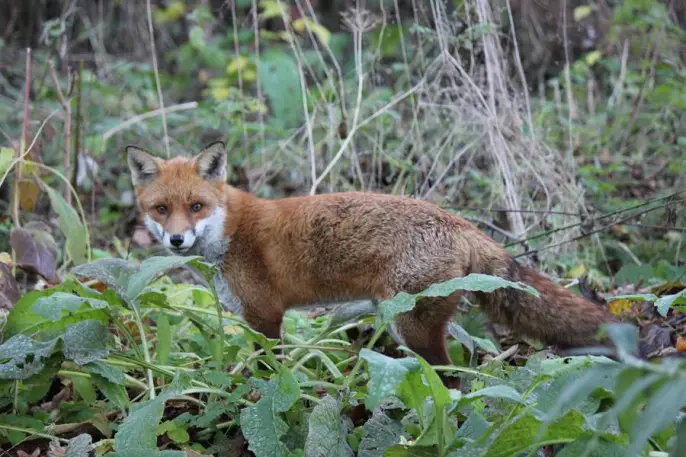
Twenty-five years ago, enthused after completing my PDC I was looking for a project to get involved in in Nottingham. Luckily the perfect project existed a couple of miles down the road. Ecoworks had been in existence for five years by that point and were putting permaculture ethics and principles to the test. They were founded by environmentalists and mental health advocates and their first logo was “earth care through people care, people care through earth care”. They were working with people who had experienced mental distress and providing activities that demonstrated permaculture in action. On my first day I saw the shed made from doors liberated from the nearby asylum, met the tame fox and began my long association with the Hungerhill allotments.
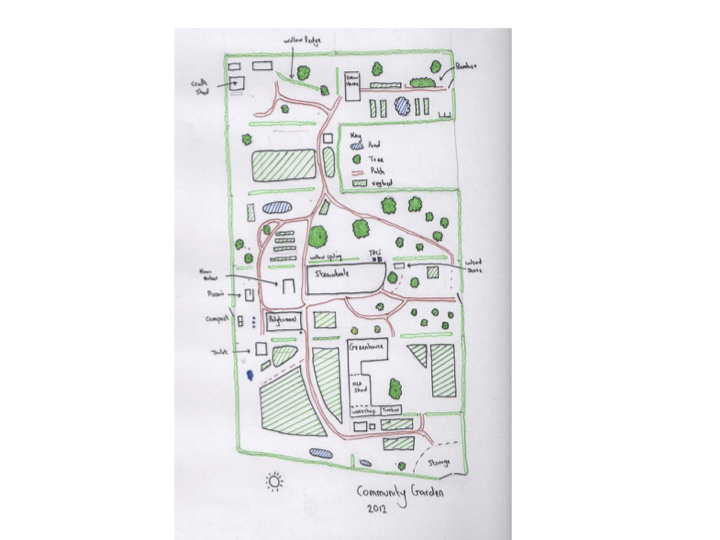 Ecoworks
Ecoworks is situated in the heart of St Ann's in Nottingham. It occupies ten of the Hungerhill (now called St Ann's) allotments, which is the largest and oldest allotment site in England. We’ve always tried to do the sort of things people think you can only do in the middle of the countryside and tried to make them accessible to as many people as possible.
Twenty five years later, Ecoworks has now turned 30! The site is a haven of mature orchards, vegetable growing areas, wildlife habitat, pathways and trails for visitors to explore and to engage with nature, green spaces and city vantage points designed to help people unwind and swathes of willow coppice and sculpture to provide both secluded spots and materials for traditional crafts.
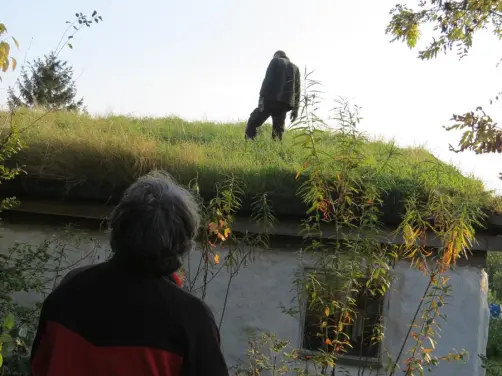
Our indoor activities are based in our green roofed, straw bale building which was the first building of its kind in the county. We are curious folk here and we wanted to enjoy the experiment of whether it was possible to build a straw bale building in Nottinghamshire and whether it would survive the elements. As the main purpose of the site is social inclusion, we encouraged as many volunteers as possible to get involved in the build. This meant that the building was built at the volunteers pace, with lots of cups of tea and plenty of breaks to admire our work. We followed the old scandinavian tradition of planting green roofs with alliums, by adding babbington leeks and chives into the design. The building collects 3000 litres of rainwater annually and its passive solar design keeps us warm in the winter and cool in the summer.
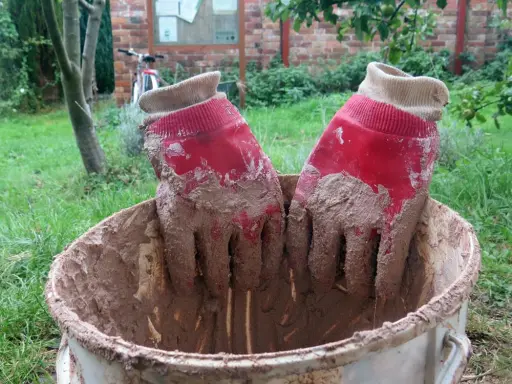
There have been lots of challenges over the years. Funding being the biggest one. We all begin these things as “projects” and its been proven they improve peoples mental health. But they still remain projects and need to get repeat funding rather than being funded as an “essential service” in the way a leisure centre or library is. The site has been improved with electric gates and a borehole, which then led to an increase in rent, which has tripled over the last decade. We’ve learnt lots over the years. One of which is that as a small organisation we can weather lean periods. The bigger you are the harder you fall, so the permaculture principle of “Use small and slow solutions” has served us well.
So 30 years on from those experimental, innovative beginnings we now run three main projects. All projects are free and open to anyone on a drop-in basis. We are all about social inclusion, so the pace is slow. The idea is the taking part is as important as the end result. And having fun is an important yield!
Willaxation
We use some of our zone 4 areas for growing willow on site. This is then harvested to make baskets, plant supports and sculptures. This is a great activity for volunteers who struggle with anxiety, as it gives them a gentle focussed activity where they can choose the level of social interaction that they feel comfortable with. Our Willaxation sessions run every Tuesday from 10am- 3pm.
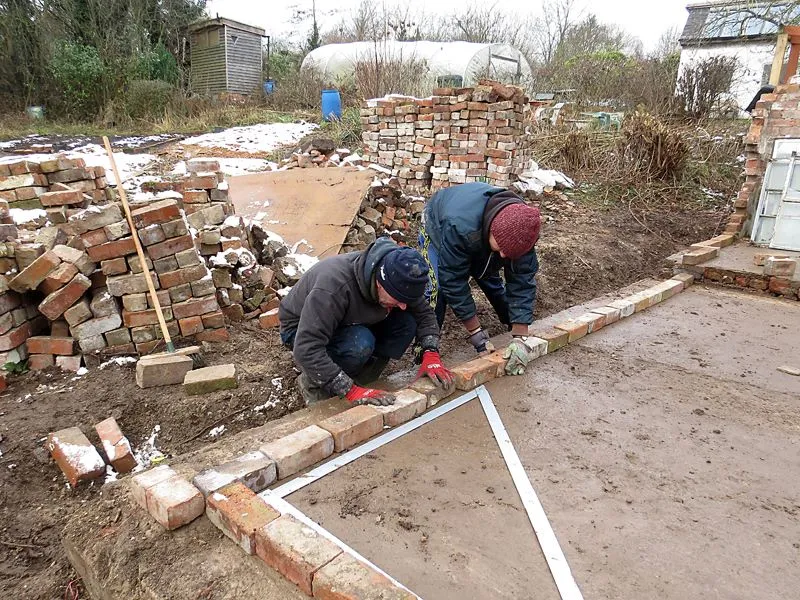 Light Bulb Studio
Light Bulb StudioWe are currently retrofitting an old building on the site, formerly known as Eric's shed, using reclaimed materials. The inside of the building has been lined with old 'for sale/ to let' hoardings. As with our other building, the studio will feature a green roof and will be used to harvest rainwater. Volunteers can learn valuable skills in eco-design techniques, off-grid technologies, sustainable methods and traditional craft skills, to create an off grid community art studio that will be of great benefit to our community. Our green build sessions run on Wednesdays from 10am- 3pm
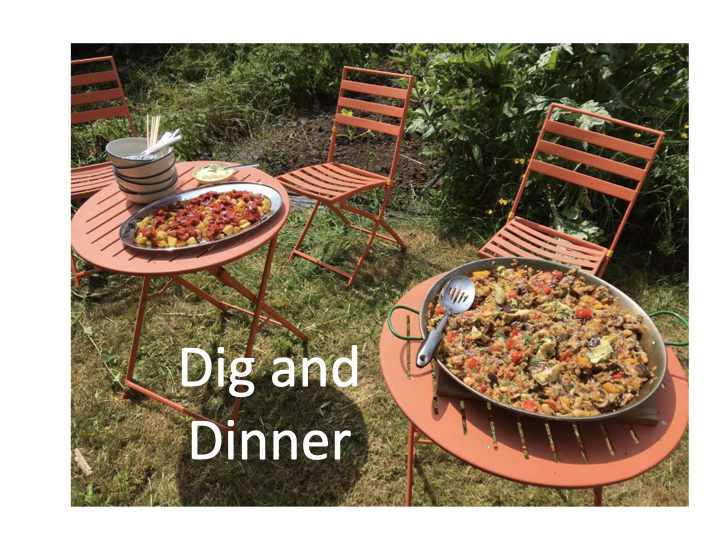 Dig and Dinner
Dig and DinnerWe grow lots of food in the garden, but we found that people weren't taking it home, despite it being freely available. It turned out that many of our volunteers didn't have good cooking skills, quite a few didn't have ovens at home and others were concerned about rising fuel costs which affected what they were willing to cook. So we started using the garden produce and cooking a healthy vegan meal with it once a week. Spanakopita with 21 foraged greens and nettle pakoras are examples of the things people have cooked on the woodburning stove in the strawbale building. Dig and Dinner runs every Thursday from 10am-3pm.
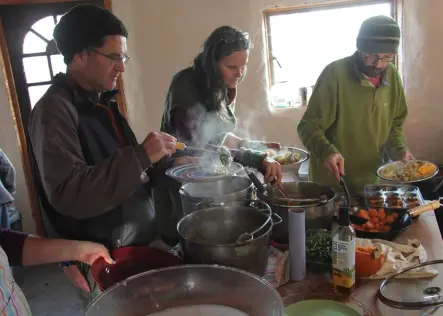
We had our winter 30th birthday party at the start of December but are planning a larger garden party next year, so do come along and celebrate with us. Hopefully we’ll have some exciting new projects to announce then too! If you would like to volunteer at the garden please get in touch, there are lots of opportunities here for you to get involved. We are also happy to show visitors around the gardens and the wider allotment site, so you can come and see how things have developed over the last thirty years of Ecoworks.